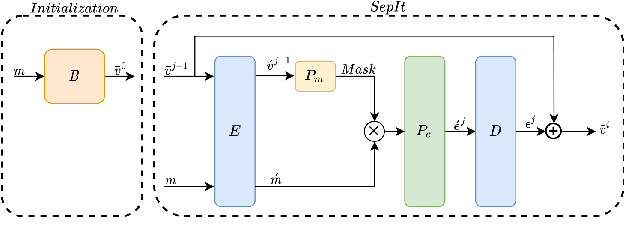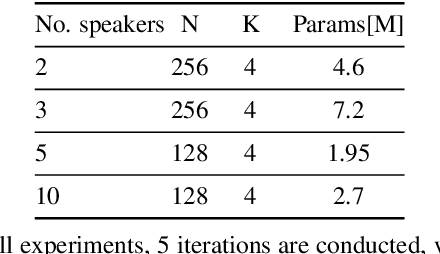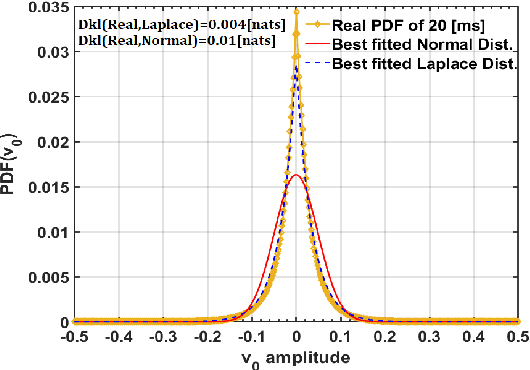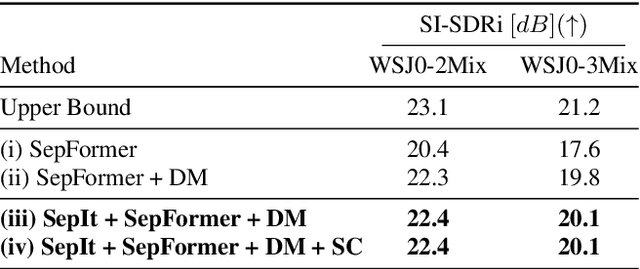SepIt: Approaching a Single Channel Speech Separation Bound
Paper and Code
May 25, 2022



We present an upper bound for the Single Channel Speech Separation task, which is based on an assumption regarding the nature of short segments of speech. Using the bound, we are able to show that while the recent methods have made significant progress for a few speakers, there is room for improvement for five and ten speakers. We then introduce a Deep neural network, SepIt, that iteratively improves the different speakers' estimation. At test time, SpeIt has a varying number of iterations per test sample, based on a mutual information criterion that arises from our analysis. In an extensive set of experiments, SepIt outperforms the state-of-the-art neural networks for 2, 3, 5, and 10 speakers.
 Add to Chrome
Add to Chrome Add to Firefox
Add to Firefox Add to Edge
Add to Edge